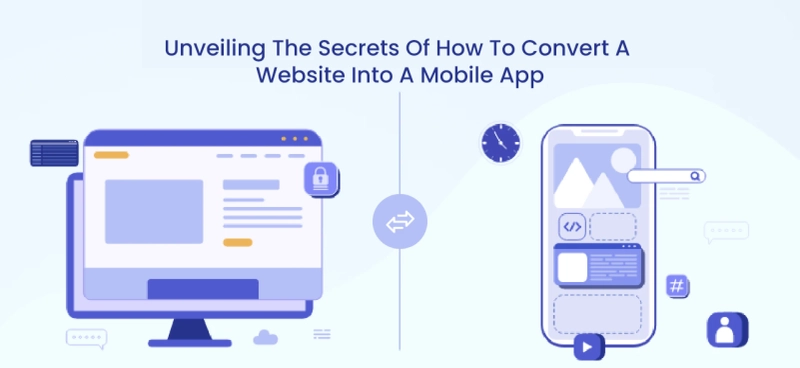In the world of business, it would be surprising if you don’t own a website today. Having a website was a luxury 20 years ago. But it has become an everyday thing today. What’s even more interesting is that this trend is slowly shifting towards mobile apps.
If you observe the data today, around 89% of users prefer mobile apps while only 11% like using websites. And with the contributions from top mobile app development companies, this process has become even more convenient.
If you observe successful companies, you would learn that they tend to transform into mobile apps. As the process might seem cumbersome, you can hire iOS app developers for the same. Here’s a read that shares the secret of converting a website into a mobile app.
Benefits of Converting a Website into a Mobile App
More Consumer Access
There are a lot of potential customers in the mobile market. Due to the mobility factor, there is an anyway increase in the total number of mobile users all over the world. It allows clients to access any information from anywhere in the world.
Quick Operability
Most operations in a mobile app can be performed quickly when compared to websites. This is due to the framework used and the personalization strategy that focuses on showing only the needed or desired information.
Personalization
Mobile apps are designed especially for users. Before a user starts with the app it asks for preferences, locations, needs, and other requirements. An app demands such info to give an exclusive experience to the consumers eliminating all the redundant information.
Connection with Users
A mobile app offers instant access to your users. Do you even count how many times you access Instagram or Whatsapp during the day? So, a mobile app accounts for any time and anywhere access. They can surely use your services, but your app can also further its engagement by offering one-tap access to data.
Offline Mode
Due to the data stored on your device, a mobile app can party operate offline. But a website would work only when you are online. It’s fair to say that users can’t be online all the time and at times they need to retrieve certain info urgently. What do you think a user would prefer?
Push Notifications
If you’ve observed platforms such as Instagram have made the best use of this feature to get the highest engagement rates. This is because a notification can invoke curiosity in a user and this would lead them to access your application. In a way, it adds minutes or hours to a user’s screen time without them being consciously aware of the same.
How to Go About Converting your Website into a Mobile App?
Like all other things in life, the apps that we use daily also have a wide variety. One has to analyze their business type and audience and then decide on the app they wish to create for it. Another important factor to consider would be your total app development cost and the niche you wish to target. Here are different app types that you can plan your transition to.
Progressive Web Apps
There has been a lot of development in the area of mobile-friendly websites known as progressive web apps or PWAs. This is a hybrid space that offers a quick and mobile-friendly experience that lies between a website and a mobile app. It can also be considered a website with the attributes of a mobile app. The prime advantages of a PWA include:
Web discoverabilityOffline functionalityReduced costRapid development process
Cross-Platform Mobile App Development
Opting for Native app development right from the inception of a project can be a burdensome effort from a startup’s perspective. Therefore it can become a concern when things don’t go according to the plan. The below-mentioned hybrid app development frameworks are best preferred by businesses around the globe.
Ionic
Using CSS, HTML, and JavaScript, Ionic offers an open-source SDK to develop mobile apps. But to get efficient results one needs to inculcate Apache Cardova and AngularJS. Some of the great examples of applications are Pacifica, JustWatch, and Marketwatch.
React Native
As per React native app development company, React Native is cross-platform tech that works to its fullest efficiency when integrated with ReactJS. Some of the advantages of working with React include:
Offers apps for both Android and iOS using a single codebase. High performance using minimal resources.Best for developing web apps as well as conversion sites.Native App Development
If you have the time and budget and wish to have an app that offers the daily with exclusive hardware efficiency. Development for both iOS and Android platforms would need assistance from an on-demand app development company. Here are some noteworthy things about native techs.
Offers performant apps that can function under high load.Features focusing on your niche business can be designed.Great security features.Wrapping Up
Here’s a wrap to this read. We hope it shared essential insights on why and how one can transition from website to web or mobile apps. Have you made this transition yet? Share your experience in the comments section. Thank you for reading.
0



